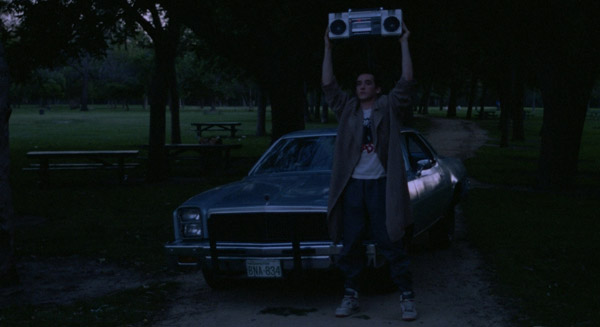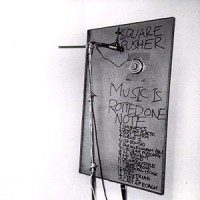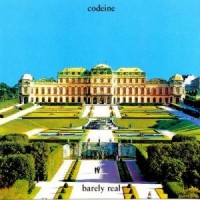Here Are Some Things
Francine Prose writes a bit of a follow-up to her essay, A Scent of a Woman’s Ink. Little, she notes, has changed.
Bookforum offers a great essay on American bestsellers.
Qiu Xiaolong offers a five book introduction to classic Chinese poetry (via Bookslut).
Samuel Jackson reads Go The Fuck to Sleep.
At The Good Men Project, the best LGBT books “of all time.”
How does Shakespeare affect your brain? Someone is trying to answer that question.
More thoughts on E-book pricing.
The Guardian compiled a list of the 100 Greatest Nonfiction Books.
The Playboy Bunny employees manual is a fine read.
Poets & Writers came up with a list of 33 Twitter feeds worth following.
Here are five reasons why ebooks won’t supplant physical books.
The Paris Review is going digital and I, for one, am thrilled and ready to purchase the new digital issue.
There are new issues of The Collagist and Revolution House (debut).
Tupac would have turned 40 today.
2 New From Fence: Brenner, Holiday


Super excited about new Daniel Brenner book June available now from Fence. I’ve read his first one, The Stupefying Flashbulbs, at least a dozen times. His images are jellyfukked. Also new from Fence is Harmony Holiday’s Negro League Baseball, which comes with music. You can get them both together for 30% off.
Have you ever read something and thought, “This is not writing.”? I’d like to hear about it if you have.
Kenneth Anger on Writing

“Nobody in America, in the modern generation, has read their mythology or legends.”
“In fireworks are released all the explosive pyrotechnics of a dream. The inflammable desires, dampened by day under the cold water of consciousness, are ignited at night by the libertarian matches of sleep, and burst forth in showers of shimmering incandescence. These imaginary displays provide a temporary relief.”
“But films are very constructed—they’re like architecture. They’re pieced together, glued together. To me, it’s a craft. It’s like making a tapestry. And I prefer to think of it—you know, um, the sweat is supposed to be invisible.”
“I’ve made several films that haven’t been shown.”
Say something, say something, anything

II. Say Anything
I’ve never seen Say Anything, released in 1989 when I was 13, fell into the gap of people who were too young to see it in real time, and not interested enough to see it as the cultural imperative it kind of became for the coming of age romantic allegory. Sometimes I feel like I should just see the movie and get it over with, but I’m afraid I wouldn’t love it as much as I do now, like the idea of what you think is inside something is better, more inviolate, than the actual thing. You know how actors ruin the characters in a book made into a movie? Or how the movie ruins the book? Or how the book’s execution ruins its conception? Art, really, is a bag of failure.
So I have not seen the scene where John Cusack holds the boom box for the girl, perhaps to play a song? I know it’s about a guy who likes a girl, and he plays a song for her because maybe he can’t play guitar and sing, or maybe the song was playing during an intimate moment. Yah that’s probably it. I know these things because I have lived in this world the same way you have, and together we understand these things — the kissing, the songs, the I love and hate yous, which brings us to dawn, after the 2:00 am text, having been up all night, somewhere in the middle of this world, a broken google map URL, a night gripped by tendrils of want, which felt, this middle, like the edge.
Edge of Vision: An Exchange with John Duncan
John Duncan is an artist that has been working in the realm of art-as-experience since the mid-1970s when he lived in LA. His work has gone through many different forms and mediums as time has progressed, moving from direct actions at the start of his career to carefully articulated audio work as a primary outlet currently. Early on in his career Duncan found himself exiled from LA after performing a specifically transgressive performance piece, BLIND DATE. I find Duncan interesting due specifically to his insistence on art being affective, and how he has moved through and explored this idea throughout his career. The idea of affect is a powerful force no matter what medium it’s applied to, and Duncan is a master of transcendence, of reaching new feelings.
A couple weeks ago I emailed John Duncan with the request to ask him a few questions, and he was kind enough to comply and provide fantastic answers:
M. Kitchell:I have an interest in the consideration of “the artist” as a shaman, or the artistic practice as a shamanistic practice. What I specifically mean by this refers to “the belief that shamans are intermediaries or messengers between the human world and the spirit worlds,” and the idea that “the shaman also enters supernatural realms or dimensions to obtain solutions to problems afflicting the community” (wikipedia). You have specifically expressed the idea that much of your praxis is geared towards learning, in a sense a self-education. It seems that an extension of this, in the presentation of the work itself, is the interest in a mode of communication, a way to share the experience and the knowledge learned. In some of your performance & installation work, it could be said that you are subjecting the audience to as much stress, or, perhaps, negativity, as you have submitted yourself to. There seems to be the intent of arriving at, say, a new consciousness, a discovery, an advancement. I think there’s generally an expectation of a distance between the audience and the work of art, but much of your work seems to deny that distance, it seems to specifically violate it. This denial of distance is not specifically something unique to your work, but much of your early work (SCARE, MOVE FORWARD, MAZE) seems to aggressively challenge this distance. Can you talk a little about this, how important the communication of an experience is to your work?
John Duncan:The essence, especially now, is not so much the communication of an experience as it is the experience itself. In all the works you mention, the point is to somehow get spectators to at least meet me halfway as participants. To make it clear that the extent the work reveals itself to a participant depends on whether or not the participant allows it to do so, on each person’s attitudes and character.
The difference between my earlier and more recent events is that in the past participants were usually trapped and forced to deal with a unique situation that they weren’t at all prepared for, which was essential to the event. Once trapped, it was up to the individual to interpret the situation as a threat or as a chance. Now, participants are free to leave at any time. They are given a condition to accept or not. For the person who does accept, decides to follow their curiosity, the work continues to open and develop. If the person refuses, everything stops there for them, the knowledge that they couldn’t let go is what they take home.
two things (just links really)

1) Pop Serial 2 will be online in its entirety this Thursday and is being occasioned with a reading in Chicago (also Thursday) hosted in conjunction with (everybody’s favorite) New Wave Vomit.
2) The Paris-based journal Her Royal Majesty has coolly redesigned their website and started an internationally-minded lit blog. Excited to see where this goes.
Ruth Fowler shits on Tea Obreht winning the Orange Prize: “Oh how I long for the days of writers like Nabokov: those who hadn’t spent five years learning how to put a fucking sentence together, but instead wrote with their guts.”
I am drinking gin & wrote about 7 songs as they came up on random in my itunes while they played until they ended part 2
“Dust Switch,” Squarepusher, Music is Rotted One Note
 I always wished there was a stairwell in my bedroom and I never had one, you see those movies with the rooms that have the stairwells that spiral up into somewhere else, like that room in the second half of Geronimo Rex that ends the book and the weird passage of bodies through it. I spread out on the grass beside Barry Hannah’s grave last week, I rolled my back against the ground until I could see the sky behind me and the buildings there upside down, there was this yellow-lighted building where there was a party that was hanging out of the earth toward that and it was like being pressed against something in reverse gravity and I wanted to stick there but people were talking and it scrambled something like the bass in here. I always wished I could play drums but I am not a drummer-person, drummers are made out of different kind of human scrap, all drummers seem to me like they aren’t going to age at all and one day they’ll just die. This song’s ok but it really just makes me want to listen to Bitches Brew. The key tone in here is pretty nice, reminds me of crystals
I always wished there was a stairwell in my bedroom and I never had one, you see those movies with the rooms that have the stairwells that spiral up into somewhere else, like that room in the second half of Geronimo Rex that ends the book and the weird passage of bodies through it. I spread out on the grass beside Barry Hannah’s grave last week, I rolled my back against the ground until I could see the sky behind me and the buildings there upside down, there was this yellow-lighted building where there was a party that was hanging out of the earth toward that and it was like being pressed against something in reverse gravity and I wanted to stick there but people were talking and it scrambled something like the bass in here. I always wished I could play drums but I am not a drummer-person, drummers are made out of different kind of human scrap, all drummers seem to me like they aren’t going to age at all and one day they’ll just die. This song’s ok but it really just makes me want to listen to Bitches Brew. The key tone in here is pretty nice, reminds me of crystals
“W,” Codeine, Barely Real
 More keys in here, it’s like the keys in the other shut the fuck up and became the keys in this song. I wonder if you had all the songs ever written you could put them in a logical order that would just be another thing, I wonder if the length of all the songs ever written is longer than the amount of time people have been playing music, seems like yes but maybe not, when do people go to sleep, how many songs are being written right now. I don’t like this song at all really, well I guess sort of but it doesn’t song like what I remember Codeine sounding like though it’s been a long time since I pulled them up, I like those songs on albums that you skip when you are originally listening to the album a lot because you like that one song less and then later that song suddenly reappears and seems so new in the context of the others, and you can listen to it in a different way than the whole album, I’m thinking mainly of the “The Good Thing” by Talking Heads because I always hated that song until one day I didn’t. This piano part now is really getting irritating. I’ll take a sip of this drink. There’s some limeade in it which I discovered this week having in my fridge improves my life by a good 8-11%. I wish I could look up right now and see someone I didn’t expect to be here sitting in my house, it could be anybody, as long as they were supposed to be elsewhere. Will the internet let you do that one day, I hope not. Fuck a stairwell I want rope.
More keys in here, it’s like the keys in the other shut the fuck up and became the keys in this song. I wonder if you had all the songs ever written you could put them in a logical order that would just be another thing, I wonder if the length of all the songs ever written is longer than the amount of time people have been playing music, seems like yes but maybe not, when do people go to sleep, how many songs are being written right now. I don’t like this song at all really, well I guess sort of but it doesn’t song like what I remember Codeine sounding like though it’s been a long time since I pulled them up, I like those songs on albums that you skip when you are originally listening to the album a lot because you like that one song less and then later that song suddenly reappears and seems so new in the context of the others, and you can listen to it in a different way than the whole album, I’m thinking mainly of the “The Good Thing” by Talking Heads because I always hated that song until one day I didn’t. This piano part now is really getting irritating. I’ll take a sip of this drink. There’s some limeade in it which I discovered this week having in my fridge improves my life by a good 8-11%. I wish I could look up right now and see someone I didn’t expect to be here sitting in my house, it could be anybody, as long as they were supposed to be elsewhere. Will the internet let you do that one day, I hope not. Fuck a stairwell I want rope.
